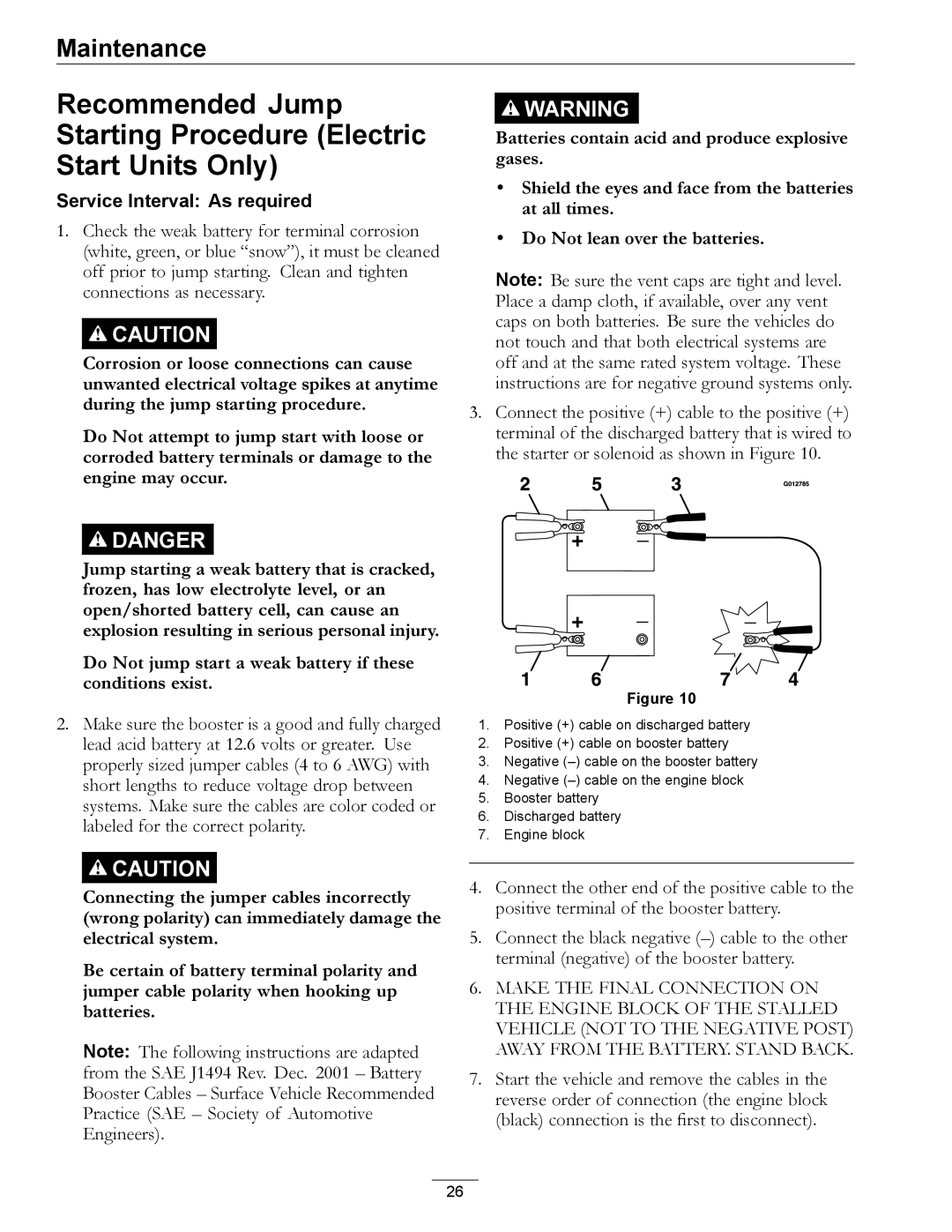
Maintenance
Recommended Jump
Starting Procedure (Electric
Start Units Only)
Service Interval: As required
1.Check the weak battery for terminal corrosion (white, green, or blue “snow”), it must be cleaned off prior to jump starting. Clean and tighten connections as necessary.
![]()
![]() CAUTION
CAUTION
Corrosion or loose connections can cause unwanted electrical voltage spikes at anytime during the jump starting procedure.
Do Not attempt to jump start with loose or corroded battery terminals or damage to the engine may occur.
![]()
![]() WARNING
WARNING
Batteries contain acid and produce explosive gases.
•Shield the eyes and face from the batteries at all times.
•Do Not lean over the batteries.
Note: Be sure the vent caps are tight and level. Place a damp cloth, if available, over any vent caps on both batteries. Be sure the vehicles do not touch and that both electrical systems are off and at the same rated system voltage. These instructions are for negative ground systems only.
3.Connect the positive (+) cable to the positive (+) terminal of the discharged battery that is wired to the starter or solenoid as shown in Figure 10.
![]()
![]() DANGER
DANGER
Jump starting a weak battery that is cracked, frozen, has low electrolyte level, or an open/shorted battery cell, can cause an explosion resulting in serious personal injury.
Do Not jump start a weak battery if these conditions exist.
2.Make sure the booster is a good and fully charged lead acid battery at 12.6 volts or greater. Use properly sized jumper cables (4 to 6 AWG) with short lengths to reduce voltage drop between systems. Make sure the cables are color coded or labeled for the correct polarity.
![]()
![]() CAUTION
CAUTION
Connecting the jumper cables incorrectly (wrong polarity) can immediately damage the electrical system.
Be certain of battery terminal polarity and jumper cable polarity when hooking up batteries.
Note: The following instructions are adapted from the SAE J1494 Rev. Dec. 2001 – Battery Booster Cables – Surface Vehicle Recommended Practice (SAE – Society of Automotive Engineers).
Figure 10
1.Positive (+) cable on discharged battery
2.Positive (+) cable on booster battery
3.Negative
4.Negative
5.Booster battery
6.Discharged battery
7.Engine block
4.Connect the other end of the positive cable to the positive terminal of the booster battery.
5.Connect the black negative
6.MAKE THE FINAL CONNECTION ON THE ENGINE BLOCK OF THE STALLED VEHICLE (NOT TO THE NEGATIVE POST) AWAY FROM THE BATTERY. STAND BACK.
7.Start the vehicle and remove the cables in the reverse order of connection (the engine block (black) connection is the first to disconnect).
26
